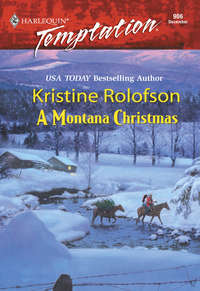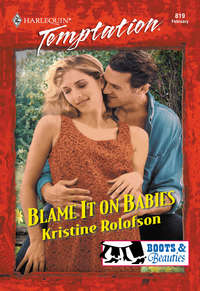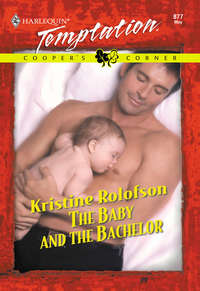
Полная версия
The Husband School
“Like Survivor?” Hank perked up. He was fifty-five, widowed, with two grown daughters and a decent property in town. He might appeal to an older demographic, maybe the over-forty women.
“More like The Bachelor.”
Jack, who worked at the feed store, grinned. “Man, that’s a great show, that Bachelor. I never miss it.” The crowd grumbled their displeasure, but Jack didn’t waver. “You should see the women,” he insisted. “They act crazy, and they’re gorgeous and they sit in a lot of hot tubs with the bachelor. Everyone tries to get a date with the guy and lots of times he can’t tell the crazy ones from the ones who really like him.”
Jack was young and good-looking, struggling to keep a small cattle outfit afloat while working in town. He picked up odd carpentry jobs and was careful with his money. And, Jerry thought, he’d look perfect on TV.
“That’s right. Hot tubs and hot women in bathing suits.” Now he had their interest.
“The only hot tub in the county belongs to MacGregor,” Gary Petersen, retired from the co-op, whispered. “And he just sat down behind you, Jerry, so you might want to keep your voice down.”
Jerry restrained himself from turning around to see if Gary was telling the truth. He’d never met Angus MacGregor’s descendant but he’d read a lot about the family history. They’d practically invented cattle ranching in Montana.
“Thanks, Gary, for pointing that out.” Jerry wrote hot tub on his paper. “I’ll bet the TV production would spring for something. Either that or maybe we could use some town funds and buy one ourselves.” Everyone looked at Mike, who shrugged.
“Money’s hard to come by these days,” he declared.
“Yeah,” Pete muttered. “And so is a sex life.”
“We’re not talking about sex,” Jerry felt it necessary to point out, though the lack of women was the one of the biggest drawbacks to living in rural Montana. “We’re talking about attracting single women to our town. We’re talking about publicity, about attracting businesses, about letting people know we live in a beautiful part of the country where people care about one another. We’re talking about expanding the population, saving the school, making Willing a great place to raise a family again.”
“Quite a speech, Jerry. You’re starting to sound like a politician,” Hank said, chuckling. “You’re not running for governor, are you, son?”
“Not yet,” Jerry said. “Now, do any of you have any objections to getting married?”
“Well,” Hank drawled, “I did it once.”
“And?” Jerry prompted.
“It sure beat being alone.”
Not exactly high praise. Jerry fought the urge to bang his forehead on the table. Instead he gave each man a long look. “You’re all lonely and miserable and you know well enough that if a woman gave you as much as a nod you’d be signing a marriage license and following her around the IGA with a grocery cart.”
No one denied it, so Jerry figured they’d all just voted yes. Yes to inviting Hollywood to Willing. Yes to encouraging a busload of single women to give Montana bachelors a chance to impress them. Yes to drumming up a little excitement for a change.
Speaking of excitement, Jerry looked down the length of the crowded room and waved to Meg. She picked up a carafe and made her way toward his table. As far as Jerry was concerned, Meg Ripley was an important person. She knew everyone in town and he had no doubt she could run against him for mayor and win in a landslide. He’d been told she was thirtyish, single and straight, so Jerry had asked her out to dinner a month after he’d moved to town. They’d quickly become friends, though Meg politely refused any dates that could be construed as romantic.
He actually preferred blondes, but dark-haired Meg was attractive in a no-frills, low-maintenance way. He’d never seen her in anything but jeans, but she had a cute figure and a nice smile. In a town overpopulated by men, she mysteriously remained single, though he’d heard plenty of stories about broken hearts. As far as he could tell, Meg kept to herself and didn’t go out of her way to break anything.
“Meg,” he began, “how many times have you been proposed to?”
“I really don’t think—”
“Seriously,” Jerry said. “It’s important.”
She took a step back. “I’m not going to—”
“Eighteen,” Jack declared. “Last time we did a count, it was eighteen.”
“You’ve kept count?” Meg shot him a horrified look and Jack shrank back into his chair.
“It’s posted at the Dahl,” Hank pointed out. “It’s not like it’s a secret or anything.”
“P-posted?” Meg sputtered. “I never saw it.”
“Men’s room.” Les whispered to Jerry, “Lucia Swallow’s up to eight and Patsy—you know, Patsy Parrish at the Hair Lair—she has seven.” These were interesting statistics, but Jerry needed Meg involved in his scheme and these numbers weren’t going to make that happen.
“Eighteen proposals of marriage,” he mused. “I’m impressed.”
“Don’t be,” she said. “I’m not.” She set down the full pot and removed the empty one. “Every once in a while someone has too much to drink, waves roses in front of me and wants to get married. And don’t get me started on Valentine’s Day.”
“There,” he said, slapping his hand on the table. “You’ve proved my point exactly. Do you all see now how unbalanced and crazy this is?”
“Crazy? You think it’s crazy that someone would want to marry me?” The look she gave him practically shriveled his manhood.
The council members sucked in their collective breaths. Jerry realized he was flying too close to the flame now, and any minute Meg would toss them all out of the restaurant, meeting adjourned. She wasn’t a fan of personal questions and she didn’t take kindly to discussing her love life, not that anyone thought she had one. He’d know if Meg had a boyfriend, probably because the news would make the front page of the local paper. Or at least the men’s room of the Dahl.
For one agonizing moment Jerry feared she would fling the empty coffeepot across the room. He’d heard there was a temper beneath the cheerful smile, but up until now he hadn’t believed it. He pulled out a chair and gestured toward it. “Look, Meg, I’m sorry. That’s not quite what I meant. Join us for a minute, will you?” He kept his voice soft, used the persuasive tone he’d spent so much time cultivating. “We need your help.”
She edged away. “No, thanks. I have breakfast orders—”
He wasn’t about to let her off the hook. He needed a female perspective and he needed it now. And he didn’t care if it came from an overly sensitive woman who had a bad attitude or a bad boyfriend or just disliked men. “Meg. Please. Just tell me, what do women want? You know, from men. We need to know.”
“Excuse me?” The question obviously surprised her, because she paused in midflight and stared at him.
“I’m serious,” he repeated, his pen poised. “Tell me what women want. It’s important. I’ll take notes.”
“Jerry,” she said, backing up. “You don’t have a big enough piece of paper.”
CHAPTER TWO
OWEN PAID NO attention to the yammering of the town council until Meg approached their table and got all huffy. Then, his attention caught by the curious discussion going on behind him, he overheard Jerry’s question and the laughter from Meg’s reply.
She’d been proposed to eighteen times? The official count was more likely to be nineteen, because Owen doubted that their teenage romance was public knowledge, so his own proposal wouldn’t be on the list. Had every man in town tried to hook up with her these past years? Now, that was an unpleasant thought. No wonder Meg was kind of prickly about the subject. That kind of attention would embarrass her—or at least would have embarrassed the shy girl he’d once known.
He watched Meg—who, surprisingly, had acted as if they were nothing more than acquaintances, which he supposed was exactly what he’d hoped for—hurry to the counter, where a couple of old guys waited to pay their bills. She looked good in those jeans. And kinda cute in the red-checked apron, too, so he couldn’t really blame the local guys for trying.
“Mr. MacGregor? I don’t think we’ve met.” Owen turned to see the redheaded man standing next to his booth and holding out his hand toward him. “Jerry Thompson. Mayor.”
“So you’re the brave man who wants to know what women want? Nice to meet you.” Owen stood and shook the hand offered to him, which prompted a flurry of greetings from the others at the table. There were condolences about his uncle, surprise that Owen was still in town and introductions made to the younger men Owen didn’t recognize.
Jerry grinned. “I guess Meg’s keeping it a secret.”
Owen, who’d had a few eye-opening experiences of his own since growing up and venturing off the ranch, knew what women wanted. He uncharacteristically shared the knowledge. “Women want your money, your attention and your soul.” That got a burst of laughter. Owen frowned and added, “And that’s just the beginning.”
The mayor’s disappointment was obvious. “Don’t tell them that. I’m trying to get something done here.”
“You’re awfully bitter for a young man, MacGregor,” Gary Petersen pointed out.
“Yeah, well, women have a way of doing that to you.” Owen returned to his seat in the booth and picked up his coffee mug. “Sort of gives you a different perspective.”
“So you’re not lookin’ to get married any time soon?” another guy asked. Pete...Pete Lyons was his name.
“I don’t have anyone in mind, Pete.” He’d played football with the guy in high school, he remembered.
“It’s a generational thing with these kids. They’re all that way,” another said.
“No, we’re not.” Jerry looked insulted. “Not all of us. I’ve been looking around for the right woman. It just hasn’t happened yet.”
“And when it does?” Owen asked the question of Jerry while the others looked embarrassed. “Will you live happily ever after?”
The mayor blushed. “I sure hope so. I want a relationship, a wife, kids, a family. The whole enchilada.”
“I don’t think it’s that easy.”
“It should be.”
“Yeah,” Owen said, “it should be, but I’ve never had much luck.”
Jack’s face fell. “Well, if you can’t get lucky, there’s no way the rest of us can.”
The conversation was fortunately interrupted by the arrival of Owen’s breakfast. Meg set three plates in front of him, one with five strips of bacon, another with three hotcakes and the third with eggs and hash browns. It was everything he’d hoped for.
He attempted to change the direction of the conversation. “I heard there’s snow—”
“Hard to believe some gal hasn’t moved herself into your place by now,” Pete declared. “Unless you’ve got someone in the city that you’re not telling us about.”
He quickly looked up to see if Meg had overheard that comment, but she seemed to have hightailed it out of there as fast as she’d delivered his meal. “It wouldn’t be a secret,” he replied as quietly as he could, “but no, there’s no one out at the place right now but me.” Not that it was anyone’s business, but that didn’t seem to stop the men’s questions.
“There will be when the TV cameras show up,” the annoyingly cheerful mayor assured him. “They’ll probably want to see a working cattle ranch. You know, for atmosphere.”
“TV cameras?” Owen picked up a slice of bacon and bit into it. Hot and crispy, it smelled and tasted great. Everything, from the buttered toast to the fried potatoes, smelled great. “What exactly is it that you have going on, Mayor?”
“We’ve just voted to bring some new business into Willing,” Jerry told him proudly. “It definitely has possibilities for population growth and prosperity.”
“He’s bringing women into town,” one of the younger ones said. The bull rider, Owen thought. “For us.”
“Beautiful women,” another interjected.
Jerry correctly interpreted the look on Owen’s face and hurried to interject. “For a TV show. A friend of mine from L.A. is looking for a remote Western location with lots of local color.”
“Local color,” Owen repeated, picking up another slice of bacon. “I assume that’s all of you?”
“What do you think?”
“About you bringing in a TV show?”
“Yes.”
“Why bother? Don’t you still get your fair share of tourists in the summer?”
“For two months, maybe three,” Jerry said. “It’s not enough.”
“Our hyperactive and ambitious mayor has come up with a way to increase the year-round population of Willing and save the town,” Gary explained. “It’s a bold plan. I’ll give him credit for that.”
“Save the town from what?” Owen hid a smile behind his coffee mug. “Plague? Pestilence? Space aliens?”
Jerry wasn’t amused. “From certain death. Literally. I have a study, with future growth projections and analyses of trends. According to the experts, Willing is going downhill.”
Owen thought about that for a long moment. He glanced out the window and didn’t see much going on. The main road into town was empty, but October was a quiet month. And winter was a quiet season. He couldn’t blame folks for worrying about the future, but Willing had never seemed to change much, let alone go downhill. It occurred to him how little time he spent here, how little he knew or cared what went on. His life was elsewhere, and had been for many years.
“What kind of trends?” Mike wanted to know. “I like to keep track of advertising prospects,” he explained.
“I have copies of the report for each one of you,” Jerry said. “As I said earlier, if we don’t start attracting businesses and families, there’s not going to be any reason to support a school. Or the money to do it. And once we have no school, we’re finished.” Jerry was obviously getting revved up.
“And the solution is a television show?”
“The solution is publicity, and lots of it.”
“And women,” Jack interjected. “Don’t forget the TV show is about women.”
“We could make this town come alive,” Jerry said. “Unless you’re willing to stand by and see your heritage evaporate, Mr. MacGregor, Willing will be a ghost town one of these days.”
Owen wasn’t sure he wanted the town to “come alive,” whatever that meant. What should have been a quick stop on the way home had turned into the possible annihilation of his descendants. “What’s wrong with things staying the way they are? And how does not having a school mean the demise of Willing?”
Jerry slid a sheaf of papers across the table. “Take a look at these and see if you think things can stay the same. As I’ve explained to the council, we need to become proactive.”
“I’ll look at them. While I eat.” Owen turned back to his meal. Because he’d said he would—and because he knew the town council would watch—he studied the report. Sure enough, doom and gloom were on the horizon, but it didn’t spoil his appetite. He methodically worked his way through his meal—and the pages of information—until all three plates were empty. Meg left him alone, as did everyone else. The illustrious members of the town council quietly discussed the weather, the price of cattle, football and the new season of Survivor.
When he was finished eating the best breakfast he’d had in years, Owen pushed the plates aside and moved his coffee closer. Across the room, Meg worked the cash register while two elderly men took turns handing her money and getting change. She looked the same as she had in high school, except her hair was shorter. She had the same warm smile he remembered being directed at him when he’d spent a lot of time hanging out in the summer kitchen, flirting with the shy girl with the big brown eyes.
“All right,” he said, turning around again to face the council. “I see your point.”
Jerry nodded. “I thought you would.”
“But I guess I can’t imagine your friends in California would be interested. We’re not exactly Bozeman.”
“That’s the hook. We’re small-town guys.” He waved his arm toward the rest of the men. “The fantasy is moving to small-town America.”
“Whose fantasy?”
“Well, people who don’t live in small towns, of course.” Jerry picked up his notepad and leafed through the pages until he found the one he wanted. “Let’s move on to preparation. We’re going to need to form some committees. Owen, can I put you down for locations? You know more about this county than anyone, and Tracy—the producer of this thing—will be looking for local color.”
“I don’t—”
“Meg!” Jerry called as she approached to clear Owen’s table of dishes.
She wiped her hands on her apron. “I am not going to answer any more ridiculous—”
“This is about catering.” Jerry flipped to another page. “Tracy will need a price list for the crew. That is, if we get the gig. Can you put something together? Meal ideas? Costs? They’re going to need to use as much local help as possible, which is good for you, since you’re the only game in town aside from Chili Dawgs, and who can eat chili dogs every night?”
Pete raised his hand. “I can.”
“I can put a menu together,” she said slowly. “What’s going on? And who’s Tracy?”
Les leaned forward in his chair. He was a likable kid and Meg felt badly that the rodeo career hadn’t worked out for him. “Jerry’s friend. Hollywood’s coming,” he said, giving Meg a shy smile.
“That’s the plan. Sit down and I’ll explain everything.” Jerry gestured toward the seat opposite him.
“Okay. I have a few minutes,” she said, surprising Owen by sitting. “Before the lunch rush starts.”
Owen watched Meg’s expression change from tolerant to skeptical as the eager mayor launched into his dying-town, we-need-women-and-families spiel. He wound up with, “What do you think? Can we make it work, get our single guys fixed up with some city women?”
“Well.” Meg looked at the men gathered around the table. Except for Jerry, they were not a sophisticated group, but she clearly didn’t want to hurt their feelings. “I guess that’s up to, ah, Tracy.”
She glanced at Owen.
“Don’t look at me,” he said, raising his hands in surrender. “I’m not going on a television show.”
“Of course you’re not. I’m sure you have plenty of women already,” she agreed, which made it sound like an insult. Owen didn’t have “plenty of women,” but he wasn’t going to deny it. Let her think he slept with someone other than Boo. She didn’t need to know that he’d read War and Peace last summer and talked to his dog more than his friends.
“You’re a fine example of the Western man,” Jerry said. “We’ll need your help.”
Owen frowned at him. “I’m a what?”
“Fine example of a Western man,” Meg repeated, obviously trying not to laugh. “That’s quite a compliment.”
Owen opened his mouth to protest, but closed it again. Jerry Thompson was one strange character. Jerry scribbled something on his pad. “Can I put you on the education committee, too?”
“No.”
Jerry acted as if he hadn’t heard Owen. “We’ll drive Tracy around and you can explain the history of the place and show her some picturesque spots for dates.”
“Picturesque spots?” Meg chuckled. “Like watching bears at the dump?”
Jerry bristled. “It’s a transfer station now. Very contained.”
Gary grinned. “We conceived our oldest daughter, uh, ‘watching the bears.’ Had to get married three months after that.”
“Too much information, Petersen,” the town treasurer said.
“But romantic,” Jerry interjected.
“Well, it was at the time.” Gary looked around the table. “I’ll bet I’m not the only one who went bear watching.”
Jack blushed and hurried to his feet. “I have to get to work. I told the boss I’d be in before noon.”
“I’ll walk out with you,” Hank said. “Got to put a new transmission into a Buick. Meeting adjourned?”
Jerry reluctantly nodded. “I’ll email everyone with your committee assignments. And I have your approval for an emergency town meeting?”
There was groaning, but Owen noticed no one actually protested. Jerry continued to make notes, Meg remained in her seat and the three youngest members of the town council sat back as if they had nothing more interesting to do this morning.
“Well,” Meg said to Jerry, “you have your work cut out for you.”
“I know.”
“No offense,” she continued, glancing at the three younger men. “But when’s the last time any of you had a date?”
Les raised his hand. “Last summer. She was backpacking—”
Owen’s curiosity got the better of him. “Did you ask her out, put on a clean shirt and take her somewhere?”
“Like where?” The poor guy actually looked confused.
“To dinner,” Meg prompted. “Or to the movies.”
“Not exactly.”
“That doesn’t count as a date,” Owen said.
Jack, one of the best-looking men in the county, leaned forward. “What about blind dates? Do they count?”
“If you asked her out, put on a clean shirt and took her somewhere,” Owen repeated.
“Nope.” Jack spread his hands out. “Got nothing.”
“It’s not like there’s a lot to choose from,” Les said. “I mean, I live with my grandparents.”
“Which helps them out a lot,” Meg assured him. “They’re always telling me what a blessing you are to them.”
“Well, blessings don’t get dates. If it wasn’t for Mexican Train dominoes and satellite TV, I’d go crazy.”
Owen felt his pain.
“For heaven’s sake,” she muttered. “Iron your clothes and go out once in a while.”
“Go where?”
“The Dahl? Church? Billings?”
“Yeah,” he grumbled. “With who?”
“This brings me to my next issue,” Jerry interjected. “We all know there are very few single women in this town.” He held up his pad. “I’ve made a list.”
Meg rolled her eyes. “Why doesn’t that surprise me?”
He looked down and read aloud. “In no particular order. Deb Walker, divorced. Lucia Swallow, widowed. Joanie Parker, divorced. I’m not counting anyone collecting Social Security or using a walker. For now I’d like to just concentrate on the under-forty age group.”
“Under forty,” Meg repeated. “That leaves Deb out.”
“I’ll cross her out, but she sure doesn’t look forty,” he said, studying his notes again. “Lucia, Joanie, Patsy Parrish, Aurora and—”
“Joanie is with Cam,” Joey said.
“Nope. Broke up. I checked.”
Joey brightened. “Really?”
“You’re an efficient guy.” Meg looked impressed. Owen wasn’t. He figured Jerry Thompson was too damn nosy. Despite the gloom-and-doom population study and the lack of social events, hosting a television show was just about the strangest idea he’d ever heard.
Jerry looked up from his papers. “Cam drank himself into a stupor last night and Aurora had to take him home when she closed up.”
“If Cam stopped drinking, he might still have a girlfriend,” Meg declared. “The guy needs help.”
“What’s in it for you?” Owen asked the mayor. “You must have known when you moved here there wasn’t much going on.”
“Uh, yeah.” He flushed, fiddled with his pen and avoided making eye contact with Owen. “I thought it was a great real-estate opportunity.”
“Uh-oh,” Meg said. “Broken heart?”
“Yes,” he admitted. “Tracy—the producer. We, uh, had a thing. About five years ago. She wouldn’t leave Los Angeles and I was having a really bad asthma problem. Smog,” he added. “I thought, well, never mind what I thought. We still text.” He glanced toward Owen. “Hey, it’s a start.”
He shrugged. “You do what you have to do.”
“She’ll be here in three weeks,” he said. “She’s coming for the weekend, before Halloween. She’ll get a taste of our picturesque Western town, meet the guys, see the sights and check out the festivities.”
“Festivities?” Owen remembered parties for the kids at the elementary school, teachers dressed as witches and decorations on a few houses, but he wouldn’t have described them as particularly festive.
“Big party at the Dahl the Saturday night before Halloween,” Jerry said. “There’s a raffle to see who gets to decorate the bear.”
“Your grandfather’s bear,” Les explained, in case Owen had forgotten. “It’s a big deal.”
Owen tried to picture the massive stuffed grizzly in a costume but couldn’t wrap his mind around it. He wondered if that was another one of the mayor’s crazy ideas.






